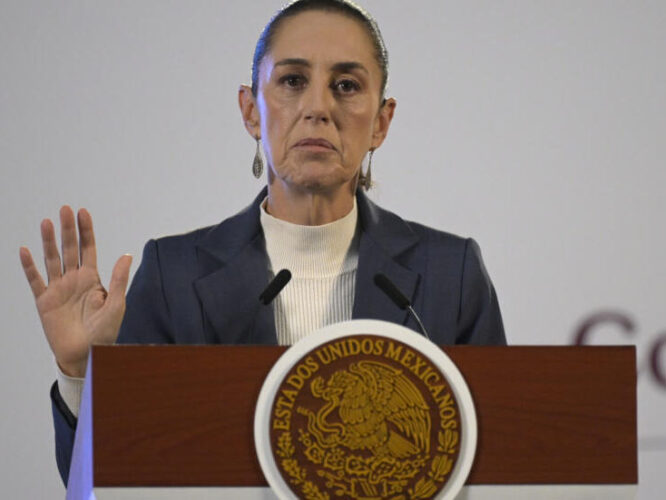Mexican President Claudia Sheinbaum issued a formal apology on Wednesday for the 1968 student massacre by the military, marking one of her first actions after taking office. “October 2nd will not be forgotten!” Sheinbaum, a former student activist who calls herself the “daughter of ’68,” declared on the massacre's anniversary.
Official reports state that 30 people were killed when security forces opened fire on students peacefully protesting in Mexico City's Tlatelolco district, just days before the Olympic Games. However, activists and relatives claim the death toll was closer to 400.
In her first press conference after being sworn in as Mexico’s first female president, Sheinbaum announced plans to issue a decree recognizing the massacre as a crime against humanity. She vowed that security forces would never again be used “to attack or repress the people of Mexico,” ahead of a planned protest demanding justice for the victims.
Born to Bulgarian and Lithuanian Jewish migrants in Mexico City, Sheinbaum came of age during the 1960s student movements that challenged the long-standing rule of the Institutional Revolutionary Party (PRI). Her mother, a university professor, lost her job for denouncing the massacre.
Later that day, thousands of people marched in the annual demonstration honoring the fallen students. Some protesters, known as the "black bloc" for their hooded black attire, clashed with police in Mexico City's Zocalo, throwing stones and firecrackers.
Oscar Menendez, 90, who witnessed the 1968 tragedy, criticized the apology, saying, "It is not enough to apologize. We want justice… Apologies are for friends, not for those of us who gave our lives to change this country." Another protester, Angel Rodriguez, 76, acknowledged that while the apology was significant, it should have come from previous administrations.
Sheinbaum, a scientist by training, won a decisive victory in June, promising to continue the left-wing reforms of her predecessor, Andres Manuel Lopez Obrador. Despite an approval rating of 70 percent, Lopez Obrador left office this week due to the country’s single-term limit. He is credited for implementing policies focused on helping Mexico's poorer population.
As Sheinbaum steps into office, she faces the challenge of addressing rampant criminal violence, much of it driven by drug trafficking and gangs, which has claimed over 450,000 lives since 2006. She plans to unveil her security strategy next week.









